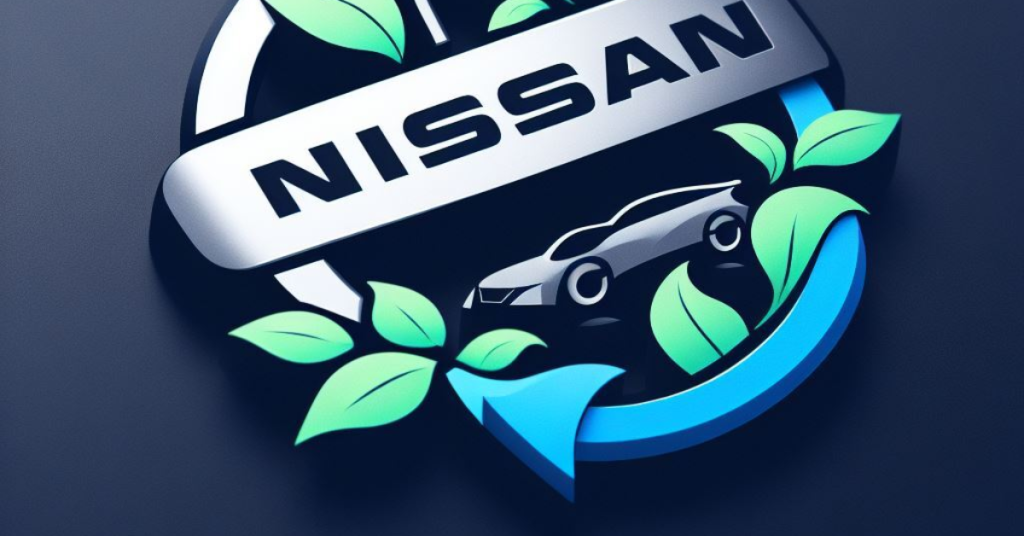
Keeping Your Nissan Running Smoothly: A Maintenance Odyssey
As a proud Nissan owner, I’ll admit that navigating the maintenance schedule can sometimes feel like a mysterious journey – full of unexpected turns, hidden gems, and the occasional pothole that threatens to derail my road trip. But fear not, fellow Nissan enthusiasts, for I’m here to demystify the maintenance process and provide you with a comprehensive breakdown that will have your ride purring like a finely-tuned engine.
Routine Maintenance: The Key to Longevity
Let’s start with the basics – the regular maintenance tasks that should be on every Nissan owner’s radar. According to the Nissan maintenance schedule, there are a few non-negotiable items that deserve our attention:
Oil Changes: The Lifeblood of Your Nissan
As the old saying goes, “change your oil, change your luck.” Well, maybe that’s not the exact phrase, but the sentiment still rings true. Regular oil changes are the foundation of a healthy Nissan, and the recommended interval can vary depending on your model and driving conditions. For example, the 2019 Nissan Rogue owner’s manual suggests changing the oil every 3,750 miles or 3 months, whichever comes first. But don’t worry, your Nissan dashboard will be sure to let you know when it’s time for a fresh batch of that sweet, sweet lubricant.
Tire Rotations: Keeping Things Rolling
Rotating your tires at the recommended intervals (typically every 5,000 miles) is another crucial maintenance task. This simple procedure helps ensure even wear and tear, prolonging the life of your tires and providing a smoother, more balanced ride. And let’s not forget about those all-important tire pressure checks – keeping those babies properly inflated is key to fuel efficiency and handling.
Brake Inspections: Stopping Power for Peace of Mind
Your Nissan’s brakes are the unsung heroes of the road, silently working overtime to keep you and your passengers safe. Regular brake inspections, usually recommended every 6 months or 6,000 miles, can help identify any wear or issues before they become a costly problem. And don’t forget to have your brake fluid flushed and replaced at the intervals specified in your owner’s manual.
Cabin Air Filter Replacements: Breathe Easy
Cabin air filters are the unsung heroes of your Nissan’s interior, trapping all those pesky particles and pollutants that would otherwise find their way into your lungs. The recommended replacement interval is typically every 12 months or 12,000 miles, but be sure to consult your owner’s manual for the specifics on your model.
Going the Extra Mile: Beyond the Basics
Now that we’ve covered the maintenance essentials, let’s dive a little deeper into some of the less frequent, but equally important, tasks that will keep your Nissan in tip-top shape.
Timing Belt Replacement: Timing is Everything
Depending on your Nissan model, you may need to replace the timing belt at a specific mileage interval, usually around 60,000 to 90,000 miles. This critical component ensures your engine’s valves and pistons are in perfect sync, and failing to replace it at the recommended time can lead to catastrophic engine damage. So, be sure to stay on top of this maintenance item to avoid a costly surprise down the road.
Coolant Flushes: Keeping Your Nissan Chill
Your Nissan’s cooling system is the unsung hero of the engine bay, working tirelessly to keep things from overheating. Flushing and replacing the coolant at the recommended intervals (typically every 30,000 miles) is essential to maintaining optimal operating temperatures and preventing any nasty surprises.
Transmission Fluid Changes: Shifting with Ease
Depending on your Nissan model and driving conditions, you may need to change the transmission fluid every 30,000 to 60,000 miles. This helps ensure your gears are shifting smoothly and your transmission is operating at peak efficiency. Neglecting this task can lead to premature wear and tear, so it’s definitely worth adding to your maintenance checklist.
Differential Fluid Changes: Keeping Your Wheels in Sync
Okay, let’s talk differentials. Your Nissan’s differential is responsible for distributing power to the wheels, and keeping the fluid fresh is crucial for proper operation. The recommended interval for differential fluid changes is typically every 30,000 to 60,000 miles, depending on your model and usage.
Customizing Your Maintenance Plan
Now, I know what you’re thinking – “That’s a lot of maintenance tasks to keep track of!” And you’d be absolutely right. But fear not, Nissan has your back with a host of digital tools and resources to help make the process a breeze.
MyNISSAN: Your Personalized Maintenance Concierge
MyNISSAN is your online portal to all things Nissan, including a personalized maintenance schedule based on your vehicle’s make, model, and mileage. With this handy tool, you can easily keep tabs on upcoming service intervals, schedule appointments, and even access your vehicle’s service history. It’s like having a digital mechanic in your pocket, constantly reminding you to take care of your Nissan.
Nissan Dealer Maintenance: Expertise at Your Fingertips
Of course, if you prefer the personal touch, your local Nissan dealer is always there to lend a helping hand. These maintenance pros know your Nissan inside and out, and they can provide expert guidance on the specific maintenance needs of your model. Plus, with convenient online scheduling and even the option to complete your entire purchase journey from the comfort of your own home, Nissan makes it easier than ever to keep your ride in tip-top shape.
Conclusion: The Rewards of Diligent Maintenance
So, there you have it – a comprehensive breakdown of Nissan’s maintenance schedule, complete with all the tips, tricks, and digital tools to keep your ride running smoothly. Remember, a well-maintained Nissan is a happy Nissan, and the rewards of diligent care are countless: improved performance, better fuel efficiency, and the peace of mind that comes with knowing your vehicle is in tip-top shape.
Now, who’s ready to hit the open road and see just how far their Nissan can go? I know I am – let’s do this!






